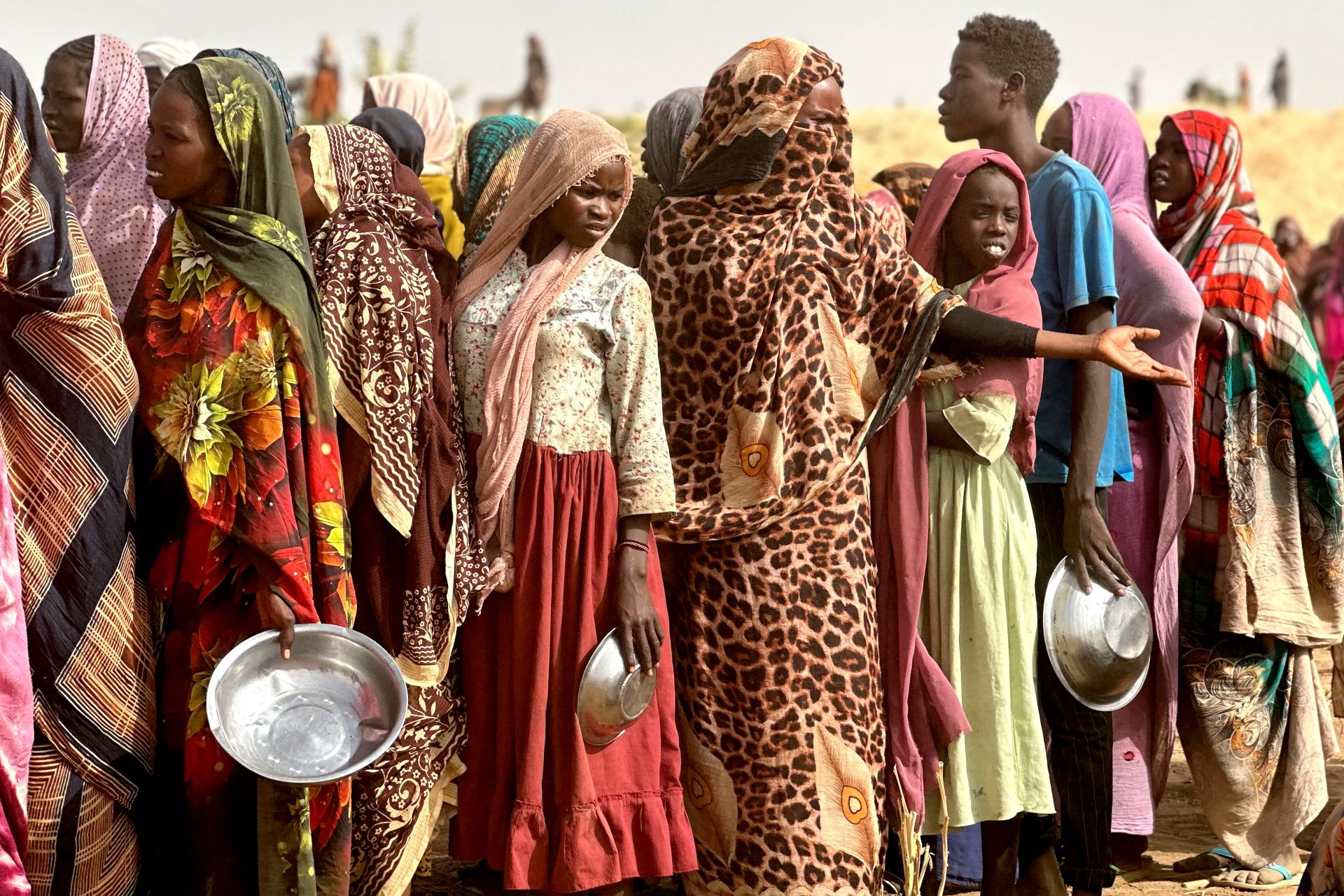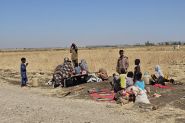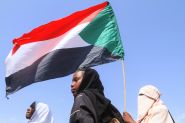- Home
- Middle East
- Thousands in Besieged Sudan City at 'Risk of Starvation'

In Sudan’s El-Fasher, where the RSF siege has blocked aid and supplies since May 2023, the World Food Programme warns that starvation is imminent, with nearly 40% of children under five acutely malnourished and families resorting to animal fodder to survive amid collapsing humanitarian access. ©Ryan CARTER / UAE PRESIDENTIAL COURT / AFP
Thousands of families trapped in a besieged city in war-torn Sudan's west are at "risk of starvation", the World Food Program warned on Tuesday.
Since May last year, El-Fasher, the state capital of North Darfur, has been under siege by the paramilitary Rapid Support Forces (RSF), who have been at war with the army since April 2023.
The RSF has encircled the city, blocking all major roads and trapping hundreds of thousands of civilians with dwindling food supplies and limited humanitarian access.
"Everyone in El-Fasher is facing a daily struggle to survive," said Eric Perdison, the WFP's regional director for eastern and Southern Africa.
"People's coping mechanisms have been completely exhausted by over two years of war. Without immediate and sustained access, lives will be lost."
El-Fasher is the last major city in Darfur still held by the army, and has come under renewed attack by RSF fighters this year since the paramilitaries withdrew from Sudan's capital, Khartoum.
A major RSF assault on the Zamzam displacement camp near El-Fasher in April forced hundreds of thousands of civilians to flee, with many seeking shelter in the city.
According to the WFP, prices for staple foods like sorghum and wheat -- used to make traditional flatbreads and porridge -- are as much as 460 percent higher in El-Fasher than in other parts of Sudan.
Markets and clinics have been attacked, while community kitchens that once fed displaced families have largely shut down due to a lack of supplies, the UN agency added.
Desperate families are reportedly surviving on animal fodder and food waste, while acute malnutrition is soaring, especially among children.
According to the UN, nearly 40 percent of children under five in El-Fasher are now acutely malnourished, with 11 percent suffering from severe acute malnutrition.
The rainy season, which peaks in August, is further hampering efforts to reach the city, with roads rapidly deteriorating.
Last year, famine was first declared in Zamzam, later spreading to two other nearby camps -- Al-Salam and Abu Shouk -- and some parts of Sudan's south, according to the UN.
The war, now in its third year, has killed tens of thousands, displaced millions and created what the UN describes as the world's largest displacement and hunger crises.
The country is effectively split in two, with the army controlling the north, east and center of Sudan and the RSF dominating nearly all of Darfur and parts of the south.
By AFP
Read more



Comments